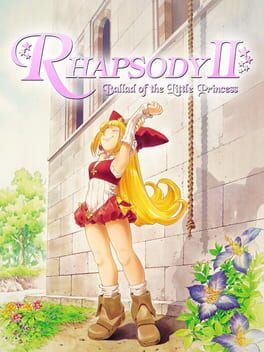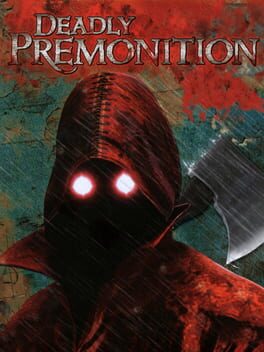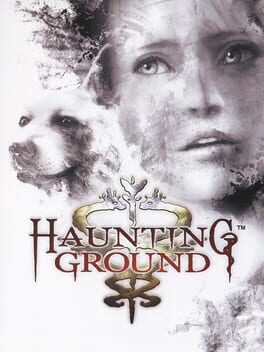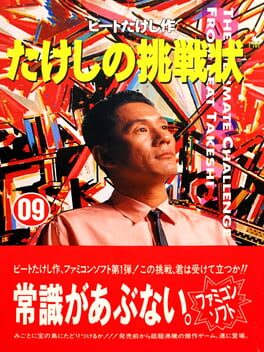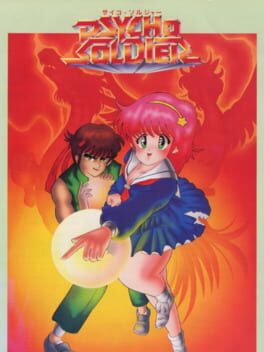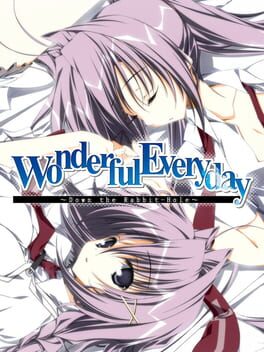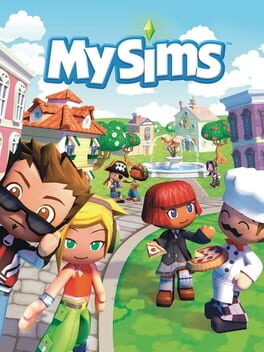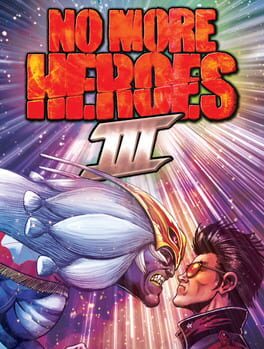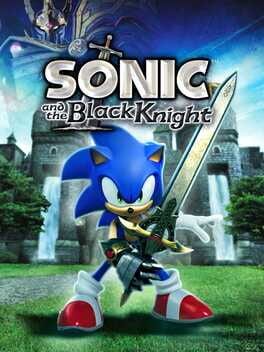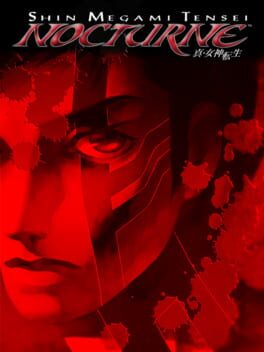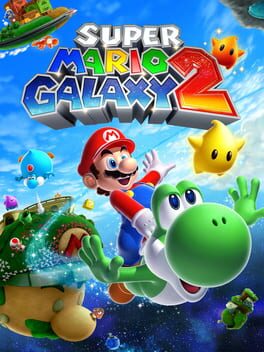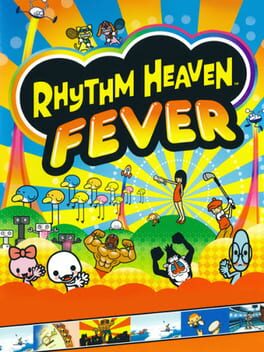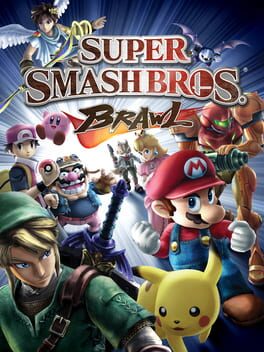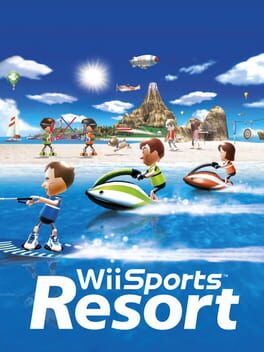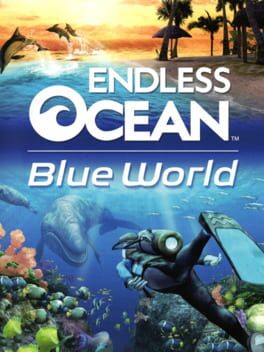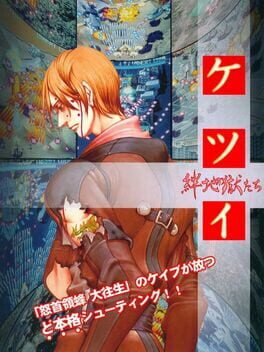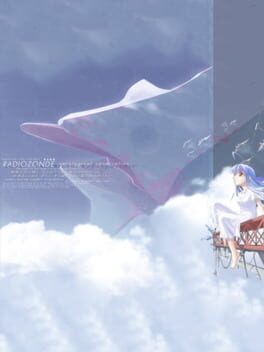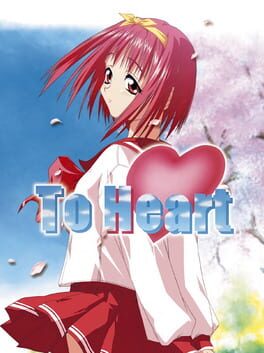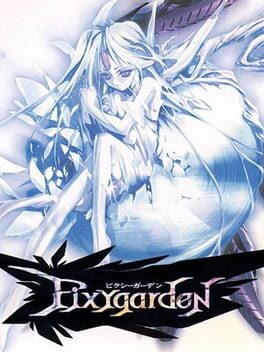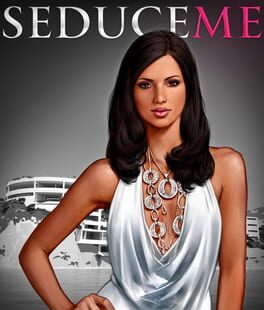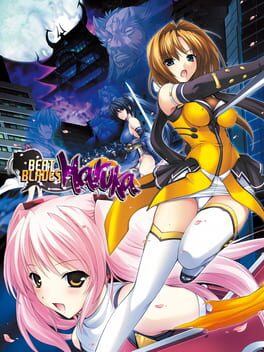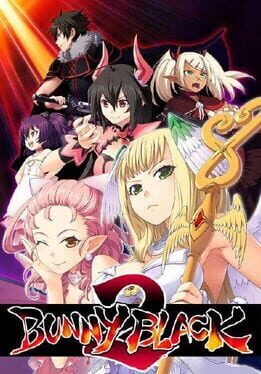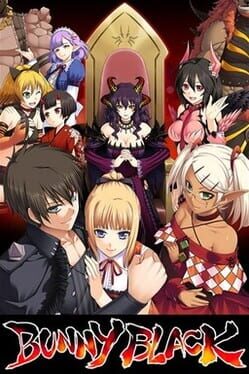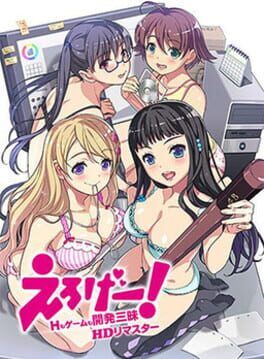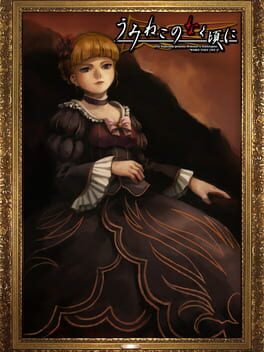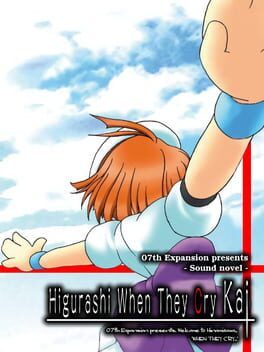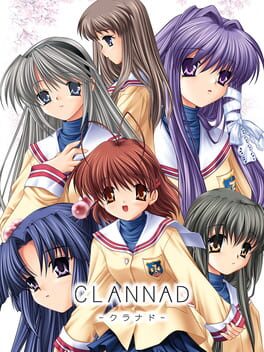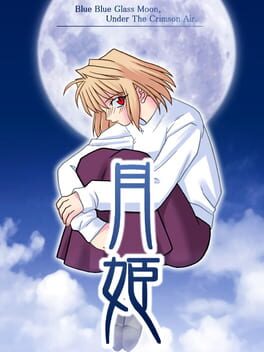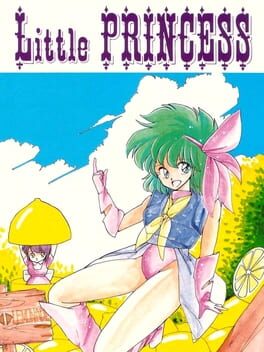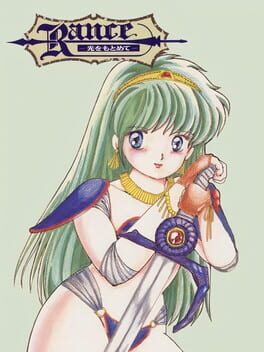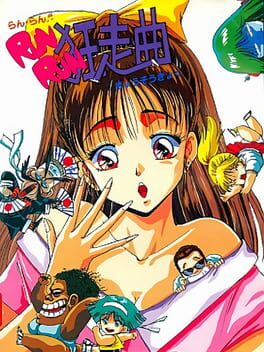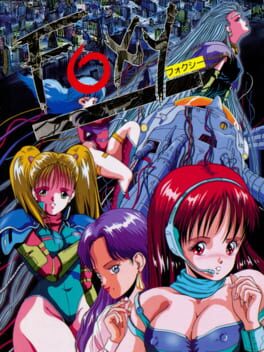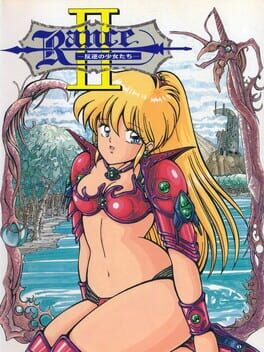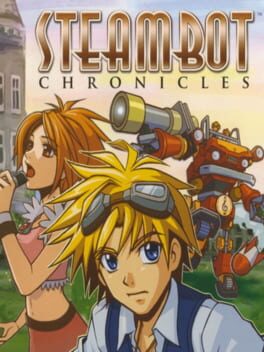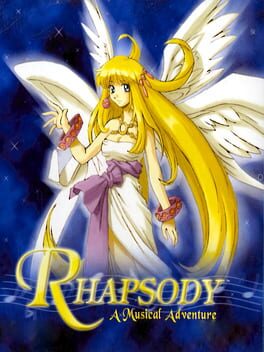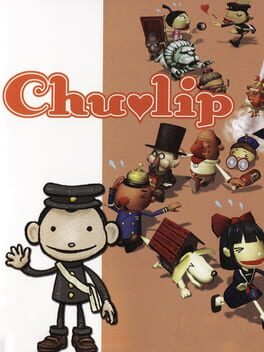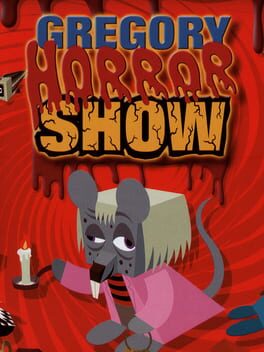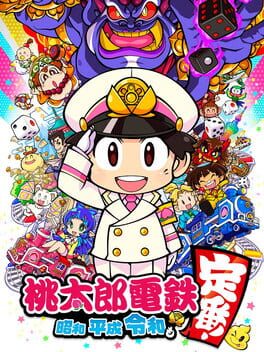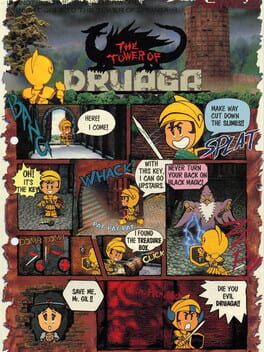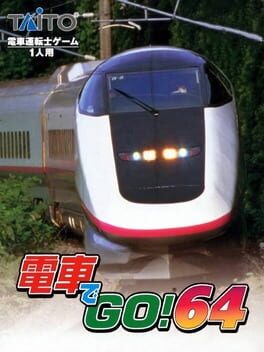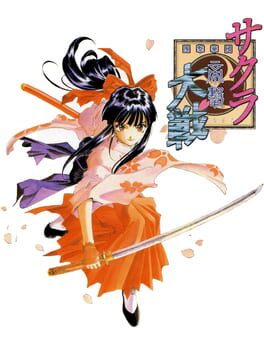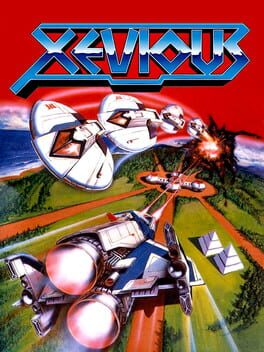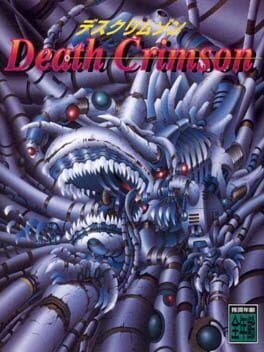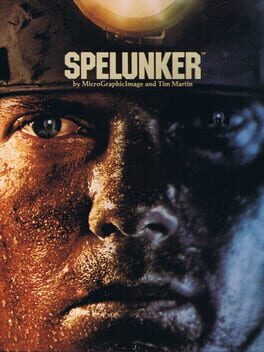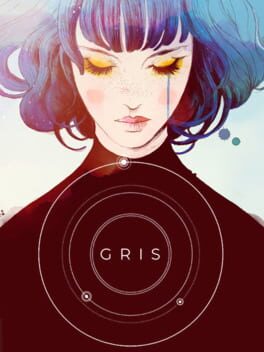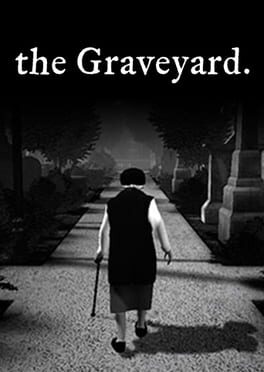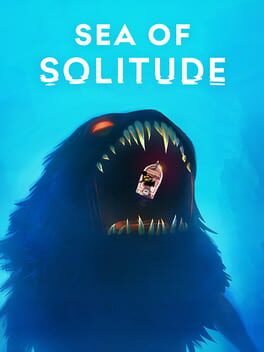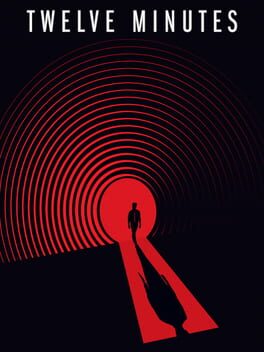denpaloli
95 reviews liked by denpaloli
Deadly Premonition
2010
6 stages of enlightment:
1. dp is bad
2. dp is so bad its good
3. dp is good in a genuine way, despite the controls and graphics and everything else besides the story and characters being bad
4. dp is good in a genuine way.
5. the endgame and the final bosses are bad for reasons relating to how dp treats its characters in need of the most crucial care, with the turn of events throughout being too dumb for its own good. and in retrospect the sequel may have only made it obvious that swery is not all that great of a writer, as far as the main stories around his protags and major supporting characters in general goes. every other problem with the game that has been talked to death about, i really dont care. the scale of greenvale and the scripted lives of its residents remind me that swery is a genuinely good director/designer if nothing else (not to ascribe too much credit to him over others). york in this game is a neurodivergent king and im not interested in anything to the contrary. the lynch comparison is inevitable even if its a little overspoken, and you can say that swery's attempt to translate the humanity of loss that made twin peaks what it is yielded mixed results, at the very best, of dp's climax. but expressing mundanity in the weird is dp's greatest asset; its more self-aware in its camp than it will get credit for, and it is always sincere in its ambitions to make the player become accustomed to both the socially oblivious weirdo you play as and the people of a pacific northwest town that is not so far off from him in their own quirks. and i think it does have some humanity in its more understated moments, particularly the series of sidequests that kicks off after talking to anna's mother, or from talking to certain character once they are arrested. even if there is some kind of auteur excess type ugliness to be found underneath the "ugliness" of the gameplay that is truly not as bad as its made out to be, sometimes monotonous and something to just get out of the way wrt the combat sections at worst imo--it can never detract from the passion within this game i feel when i am simply in it, without any flair or tonal whiplash to disturb that. a lifechanger for me that, in all the ways that really matter, still mostly deserves that title.
6. tee hee (executes a mathematically perfect 90 degree turn with a flick of the e-brake, blowing off the police investigation YET AGAIN to collect [Right Hand Bone] while york feeds me tremors movies trivia bc im about to starve to death) yay!
1. dp is bad
2. dp is so bad its good
3. dp is good in a genuine way, despite the controls and graphics and everything else besides the story and characters being bad
4. dp is good in a genuine way.
5. the endgame and the final bosses are bad for reasons relating to how dp treats its characters in need of the most crucial care, with the turn of events throughout being too dumb for its own good. and in retrospect the sequel may have only made it obvious that swery is not all that great of a writer, as far as the main stories around his protags and major supporting characters in general goes. every other problem with the game that has been talked to death about, i really dont care. the scale of greenvale and the scripted lives of its residents remind me that swery is a genuinely good director/designer if nothing else (not to ascribe too much credit to him over others). york in this game is a neurodivergent king and im not interested in anything to the contrary. the lynch comparison is inevitable even if its a little overspoken, and you can say that swery's attempt to translate the humanity of loss that made twin peaks what it is yielded mixed results, at the very best, of dp's climax. but expressing mundanity in the weird is dp's greatest asset; its more self-aware in its camp than it will get credit for, and it is always sincere in its ambitions to make the player become accustomed to both the socially oblivious weirdo you play as and the people of a pacific northwest town that is not so far off from him in their own quirks. and i think it does have some humanity in its more understated moments, particularly the series of sidequests that kicks off after talking to anna's mother, or from talking to certain character once they are arrested. even if there is some kind of auteur excess type ugliness to be found underneath the "ugliness" of the gameplay that is truly not as bad as its made out to be, sometimes monotonous and something to just get out of the way wrt the combat sections at worst imo--it can never detract from the passion within this game i feel when i am simply in it, without any flair or tonal whiplash to disturb that. a lifechanger for me that, in all the ways that really matter, still mostly deserves that title.
6. tee hee (executes a mathematically perfect 90 degree turn with a flick of the e-brake, blowing off the police investigation YET AGAIN to collect [Right Hand Bone] while york feeds me tremors movies trivia bc im about to starve to death) yay!
Haunting Ground
2005
No More Heroes
2007
Psycho Soldier
1987
has been a pretty good fix for a cartoon-character-hitting-himself-with-a-hammer-repeatedly-to-become-normal type mood the last couple of months but after getting thru the bulk of jabberwocky, my curiosity for seeing it to the end is used up. to its credit its at its most well written, which is pretty darn well written all things considered, in its more contained introspective and dreamy parts. also the referential pay off in the ending of insects is great, though jurys still out if it actually makes me feel more than "eh" abt zakuro herself on the whole. my main issue is how the bullying, which plays a huge part in the story, just feels like a means to an end most of the time, like when it configures into the h-scenes that belabor the occasionally meaningful point behind them in the best case, and in the worst case make the narrative around them feel insincere and ponderous. and even if that werent an issue, the bullying still feels so lacking in anything to really take from it directly most of the time, outside of the obvious "its fucked!", that it makes characters whose existence is practically solely in reaction to the bullying very boring to me. what ultimately made me tune out was realizing the only character i found all that worthwhile to follow was takuji (and maybe by extension yuki and tomo but as of where i stopped, im not so sure now), and the focus on naifu waifu especially is where i felt my patience for this tank hard.
should say also that the actually interesting stuff i found in this is the relationships of certain characters to the types of media they enjoy, how they express it to others and internalize it within themselves, which feels like it comes from a genuine place considering the medium subahibi is conveyed thru and the influences sca-ji namedrops constantly. frankly i wanted more done with that and less of the bulk of the extremity i dont think it needed as much as it thinks it does. not to say it shouldnt have extreme content at all--the irony behind takujis delusions for example felt the most like it wanted to do something with its format--but having better framing and being much more concise and above all having more actual ideas injected into some of its most gleeful torture n debauchery truly would not have hurt. basically despite things i appreciate here and there, couldnt find much in this and its not like i didnt try.
should say also that the actually interesting stuff i found in this is the relationships of certain characters to the types of media they enjoy, how they express it to others and internalize it within themselves, which feels like it comes from a genuine place considering the medium subahibi is conveyed thru and the influences sca-ji namedrops constantly. frankly i wanted more done with that and less of the bulk of the extremity i dont think it needed as much as it thinks it does. not to say it shouldnt have extreme content at all--the irony behind takujis delusions for example felt the most like it wanted to do something with its format--but having better framing and being much more concise and above all having more actual ideas injected into some of its most gleeful torture n debauchery truly would not have hurt. basically despite things i appreciate here and there, couldnt find much in this and its not like i didnt try.
MySims
2007
No More Heroes III
2021
The thing about NMH1 is that it's only a "game about games" insofar as it's a game about labor (specifically wage labor) and the relationship between labor and gaming both materially and representationally. It's effectively a work of games crit aimed at the then-contemporary conventions of "open-world" game design as codified by Grand Theft Auto as a means of examining how thoroughly the medium of video games and the imaginations of the people who play them have been colonized by wage labor and "the grind" to the extent that even our supposed forms of play have taken on the form of work - the minigames are kind of odious and stupid because wage labor is odious and stupid, and gig work especially so. That so little has changed in the intervening 15 years and NMH1 still has just as much bite to it now as then is depressing to contemplate lol.
In addition, Travis Touchdown himself functioned there as a critique of a very particular kind of person/audience - specifically the "nerd" or "otaku" as a consumer, first and foremost, and chauvinist secondly. By extension, it's also a game with a more sharply defined notion of class than I usually see discussed - with the notable exception of Holly Summers, all of the game's characters are split into the very clearly delineated camps of "depraved wealthy freaks" and "working class/poor", with Travis, Shinobu, Speed Buster, Bad Girl (debatably), and Jeane being the only people in the latter camp (Letz Shake is a joke not-boss whose sole purpose is to establish Henry and thus isn't counted). Travis is a neet living in a shitty motel, drifting from gig to gig and paycheck to paycheck, with no family (that he knows of) and the closest thing to a friend being the guy who runs the video store down the street, and deals with this first by embedding himself in otaku consumerism and secondly by purchasing his beam katana online and attempting to get in on "the grind" via the assassin rankings. NMH1 has a keen awareness of the otaku/nerd as a consumer identity and byproduct of capitalism, while simultaneously not losing sight of how people like Travis nevertheless benefit from the spoils of empire and capitalist exploitation - the public beach of Santa Destroy having been overrun by the U.S. mitary invokes the U.S. occupation of both Iraq and Okinawa, for instance.
I could expand on this further but this is ostensibly a NMH3 review so I'll just make one further point regarding the roles Jeane and Henry play in NMH1 in opposition to Travis. Henry serves as a parallel to Travis, rather than his opposite number - where Travis is an isolated subculture-obsessed drop out, Henry is the ostensible dream end product of "the grind": wealthy, cultured, married with a kid and a white picket fence, and gainfully employed full-time. He's the symbol of capitalist assimilation whom Travis both loathes and envies in equal measure, whom he wishes both to destroy and replace. It's fitting the game ends with their battle undecided, for their conflict is not dialectic - they both pursue the same ultimate goal of success but merely start from different points; they are parallel lines that can never truly cross.
Jeane, on the other hand, is different - she represents an existential threat to everything Travis pursues and benefits from without realizing it. Her story and Travis' are practically identical - like him, she "sold her body" for the funding required to train herself into a weapon, only she did so through sex work where Travis does so through gig work, though Travis of course cannot recognize how those two things are fundamentally the same. She murders her rapist, their father, and both destroys and rejects the nuclear family as a system, shattering Travis' hazily idealized memories of his own "happy family." Finally, she fights Travis one-on-one with no tricks and no gimmicks (save for a slowly shrinking boss arena) and, canonically, wins, and would have succeeded in killing Travis were it not for Shinobu interceding and sealing all of their fates. All potential for the shattering of systemic patriarchal violence and the destruction of the family, the possibility for change, is snuffed out with her; the past lives, still.
This is a very scattered and un-thoroughly cataloged collection of Thoughts that I've had percolating while playing NMH3 after having replayed NMH1 and 2 earlier this past year, and having just finished it today I feel reasonably confident in saying it fails to carry through any of what makes NMH1 interesting in ways equally as frustrating as NMH2 and TSA. Combat at least has been refined to a nice sheen and it stands out compared to the rest of the series on that front - the area of effect on QTE killing blows has been radically reduced to the point that it will only take maybe a couple pips off the health of surrounding enemies, but this is compensated for by your Death Glove abilities acting as invaluable crowd control and ranged tools. The Dark Step has been blessedly revised from an unintuitive stick waggle to a dedicated dodge button, and strikes a nice balance between not being quite as overpowered as in NMH1 nor nerfed into irrelevance as in NMH2. Enemy variety has also been greatly expanded with the new alien combatants and their unique gimmicks, and the various combinations each match up introduces keeps things reasonably engaging.
All that aside though, this is the most afterthought of an open world setting in maybe any game I've ever played, to no end that I can discern. The replacement of assassination missions and their varying levels of difficulty and rulesets with "defense missions" where you fight generic waves of different enemy types kinda sucks, as they're just way less fun and interesting. Likewise the removal of pre-boss combat levels where you make your way through an area to their stage, which guts a lot of the personality of the new alien antagonists (at least half of whom get killed by new or returning characters before you can fight or learn much about them anyhow), though Midori Midorikawa and Velvet Chair Girl are imho absolutely series highlights, even if not quite as challenging as I'd like.
Speaking of the aliens, the much-hyped superhero angle goes absolutely nowhere and isn't explored in the slightest, nor do any other potentially interesting thematic threads from the rest of the series. Henry gets a godawful redesign and shows up mostly out of obligation, while Jeane is reduced once again to her namesake being a pet and the biological child of Travis and Sylvia, a depressing legacy. The game likewise makes a big show of bringing back Shinobu and Bad Girl only to have them sidelined for pretty much the entire game for no reason? Idk man I really don't know why I still get expectations for games Goichi Suda is directly involved in (especially the ones he writes himself) given I'm always disappointed to varying extents, but this one in particular really does feel like a hugely wasted opportunity. Granted Suda reportedly sold 80% of his share in NMH to Marvelous!, who thus now exercise far greater discretion over what goes into them, but still! All told I enjoyed Suda's (genuinely cogent and entertaining) digressions on Takashi Miike more than I did pretty much any other element of this game. Unless you're like me and have an abiding affinity for this series, wait til this one is on sale and go watch Andromedia instead; actually just got watch Andromedia regardless it's a masterpiece.
In addition, Travis Touchdown himself functioned there as a critique of a very particular kind of person/audience - specifically the "nerd" or "otaku" as a consumer, first and foremost, and chauvinist secondly. By extension, it's also a game with a more sharply defined notion of class than I usually see discussed - with the notable exception of Holly Summers, all of the game's characters are split into the very clearly delineated camps of "depraved wealthy freaks" and "working class/poor", with Travis, Shinobu, Speed Buster, Bad Girl (debatably), and Jeane being the only people in the latter camp (Letz Shake is a joke not-boss whose sole purpose is to establish Henry and thus isn't counted). Travis is a neet living in a shitty motel, drifting from gig to gig and paycheck to paycheck, with no family (that he knows of) and the closest thing to a friend being the guy who runs the video store down the street, and deals with this first by embedding himself in otaku consumerism and secondly by purchasing his beam katana online and attempting to get in on "the grind" via the assassin rankings. NMH1 has a keen awareness of the otaku/nerd as a consumer identity and byproduct of capitalism, while simultaneously not losing sight of how people like Travis nevertheless benefit from the spoils of empire and capitalist exploitation - the public beach of Santa Destroy having been overrun by the U.S. mitary invokes the U.S. occupation of both Iraq and Okinawa, for instance.
I could expand on this further but this is ostensibly a NMH3 review so I'll just make one further point regarding the roles Jeane and Henry play in NMH1 in opposition to Travis. Henry serves as a parallel to Travis, rather than his opposite number - where Travis is an isolated subculture-obsessed drop out, Henry is the ostensible dream end product of "the grind": wealthy, cultured, married with a kid and a white picket fence, and gainfully employed full-time. He's the symbol of capitalist assimilation whom Travis both loathes and envies in equal measure, whom he wishes both to destroy and replace. It's fitting the game ends with their battle undecided, for their conflict is not dialectic - they both pursue the same ultimate goal of success but merely start from different points; they are parallel lines that can never truly cross.
Jeane, on the other hand, is different - she represents an existential threat to everything Travis pursues and benefits from without realizing it. Her story and Travis' are practically identical - like him, she "sold her body" for the funding required to train herself into a weapon, only she did so through sex work where Travis does so through gig work, though Travis of course cannot recognize how those two things are fundamentally the same. She murders her rapist, their father, and both destroys and rejects the nuclear family as a system, shattering Travis' hazily idealized memories of his own "happy family." Finally, she fights Travis one-on-one with no tricks and no gimmicks (save for a slowly shrinking boss arena) and, canonically, wins, and would have succeeded in killing Travis were it not for Shinobu interceding and sealing all of their fates. All potential for the shattering of systemic patriarchal violence and the destruction of the family, the possibility for change, is snuffed out with her; the past lives, still.
This is a very scattered and un-thoroughly cataloged collection of Thoughts that I've had percolating while playing NMH3 after having replayed NMH1 and 2 earlier this past year, and having just finished it today I feel reasonably confident in saying it fails to carry through any of what makes NMH1 interesting in ways equally as frustrating as NMH2 and TSA. Combat at least has been refined to a nice sheen and it stands out compared to the rest of the series on that front - the area of effect on QTE killing blows has been radically reduced to the point that it will only take maybe a couple pips off the health of surrounding enemies, but this is compensated for by your Death Glove abilities acting as invaluable crowd control and ranged tools. The Dark Step has been blessedly revised from an unintuitive stick waggle to a dedicated dodge button, and strikes a nice balance between not being quite as overpowered as in NMH1 nor nerfed into irrelevance as in NMH2. Enemy variety has also been greatly expanded with the new alien combatants and their unique gimmicks, and the various combinations each match up introduces keeps things reasonably engaging.
All that aside though, this is the most afterthought of an open world setting in maybe any game I've ever played, to no end that I can discern. The replacement of assassination missions and their varying levels of difficulty and rulesets with "defense missions" where you fight generic waves of different enemy types kinda sucks, as they're just way less fun and interesting. Likewise the removal of pre-boss combat levels where you make your way through an area to their stage, which guts a lot of the personality of the new alien antagonists (at least half of whom get killed by new or returning characters before you can fight or learn much about them anyhow), though Midori Midorikawa and Velvet Chair Girl are imho absolutely series highlights, even if not quite as challenging as I'd like.
Speaking of the aliens, the much-hyped superhero angle goes absolutely nowhere and isn't explored in the slightest, nor do any other potentially interesting thematic threads from the rest of the series. Henry gets a godawful redesign and shows up mostly out of obligation, while Jeane is reduced once again to her namesake being a pet and the biological child of Travis and Sylvia, a depressing legacy. The game likewise makes a big show of bringing back Shinobu and Bad Girl only to have them sidelined for pretty much the entire game for no reason? Idk man I really don't know why I still get expectations for games Goichi Suda is directly involved in (especially the ones he writes himself) given I'm always disappointed to varying extents, but this one in particular really does feel like a hugely wasted opportunity. Granted Suda reportedly sold 80% of his share in NMH to Marvelous!, who thus now exercise far greater discretion over what goes into them, but still! All told I enjoyed Suda's (genuinely cogent and entertaining) digressions on Takashi Miike more than I did pretty much any other element of this game. Unless you're like me and have an abiding affinity for this series, wait til this one is on sale and go watch Andromedia instead; actually just got watch Andromedia regardless it's a masterpiece.
